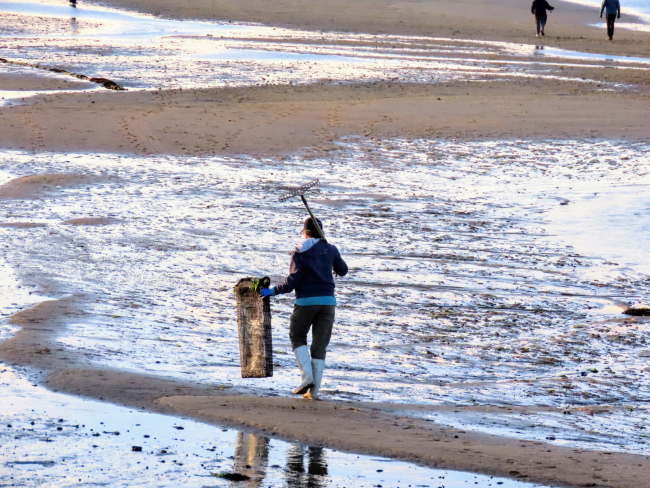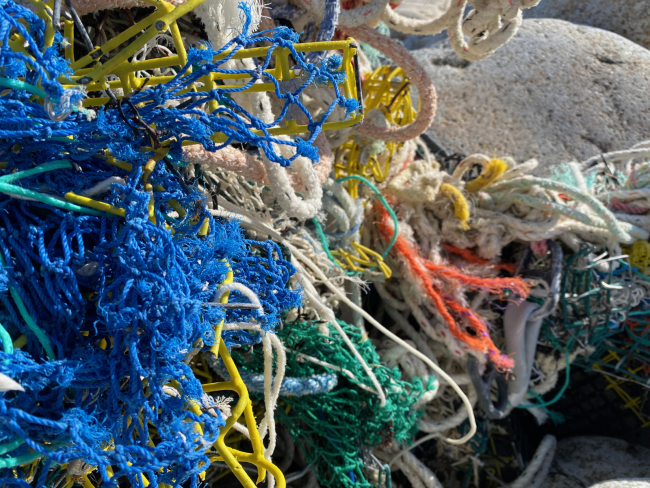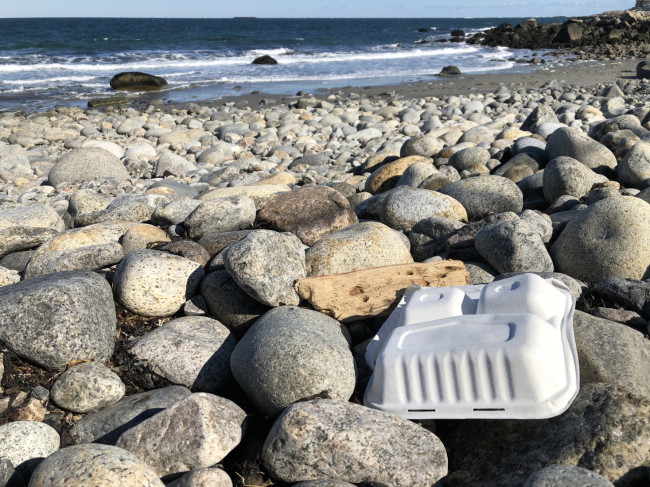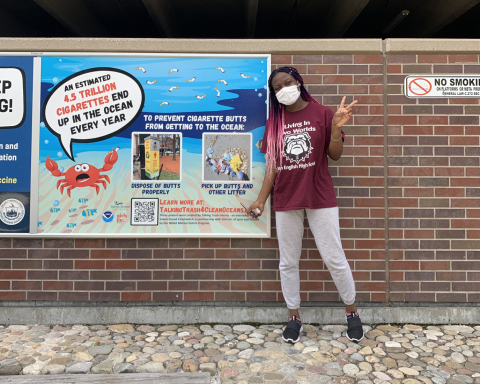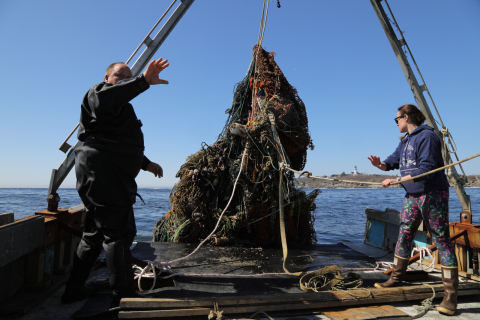Throughout the year, the NOAA Marine Debris Program will spotlight each region for an entire month. Keep an eye on our blog and social media to learn about exciting marine debris projects and initiatives throughout the country.
As temperatures slowly warm, and the Earth begins to thaw, springtime energy is evident across the Northeast Region. Though planning, cleanups, debris sorting, outreach, and research have been ongoing all winter, the NOAA Marine Debris Program’s grant-funded partners across Maine, New Hampshire, Massachusetts, Rhode Island, and Connecticut are ramping up for the summer field season and we have a lot to share!
In Cape Cod Bay, the Center for Coastal Studies is partnering with commercial and recreational fishermen, the Massachusetts Environmental Police, private and municipal solid waste disposal providers, beach-goers, and other coastal interest groups to remove derelict lobster traps and parts, dragger nets, gillnet, buoys, fishing line, rope, twine, and cable from the beaches and bay in a two-year cleanup and public education effort. Ongoing outreach efforts provide tools for fishermen to reduce the amount of fishing gear debris and other trash that may accidentally enter the environment from their operations, and encourage a proactive approach to preventing derelict gear. To the north, the Gulf of Maine Association is coordinating a project that spans the entire Gulf of Maine, from Cape Cod to Nova Scotia. Partners are coming together through this international collaboration to address the impact of plastics and other marine debris on natural resources. With more than 100 coastal cleanups already completed, partners are also engaging businesses, fishermen, boaters, and the general public in working together to prevent and reduce marine debris from entering the Gulf of Maine. Learn more about this project in a guest blog later this month.
Education, outreach, and community involvement are critical to the success of all our ongoing prevention and removal efforts. Led by Salem Sound Coastwatch, the “Talking Trash for Clean Oceans” projects include a “CoastSmart” restaurant campaign that has staff teaming up with high school interns to work with local restaurants and other community partners to reduce single-use plastics, takeout packaging, and cigarette litter. At Keene State College, partners are completing a final analysis of whether a new text-based outreach campaign can change the behavior of college age cigarette smokers and how frequently they litter their butts. At Ocean Conservancy’s Global Ghost Gear Initiative, in partnership with the Gulf of Maine Lobster Foundation, a team is working with fishermen to remove derelict fishing gear from waters around the region and implement best practices for managing gear and preventing and reporting gear loss.
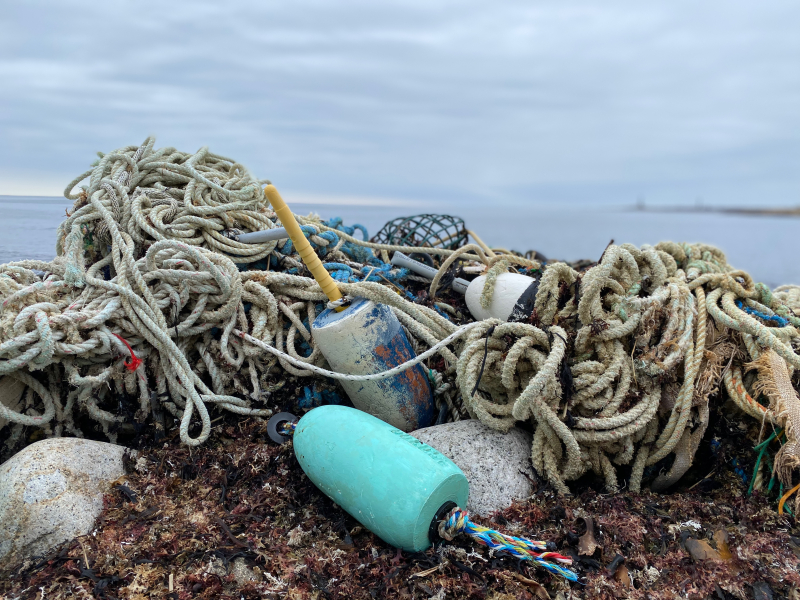
The NOAA Marine Debris Program and partners have also been busy updating regional marine debris action plans. The Gulf of Maine Marine Debris Action Plan was originally published in November 2019. Since then, operations have changed for many organizations. During the mid-plan workshop in February, we got to work bringing the plan, and all of its dedicated partners, up to speed on ongoing efforts across Maine, New Hampshire, Massachusetts, and our neighboring Canadian provinces of Nova Scotia and New Brunswick. The newly updated actions will be published to the NOAA Marine Debris Program’s website in the coming months.
A little farther south, New York and Connecticut Sea Grant partners have been leading the development of a Long Island Sound Marine Debris Action Plan. Nearly 50 partner organizations have been coming together since February 2021 to identify the top priorities for marine debris removal, prevention, research, and policy in the Sound. Once finalized this spring, the Action Plan will be published to the Marine Debris Program’s website for partner reference. The NOAA Marine Debris Program will then focus on supporting the development of a new action plan for Rhode Island and the southern coast of Massachusetts. We look forward to digging into the unique issues there and increasing collaboration with new partners.
Partner-led community cleanups, educational events, and workshops are coming up soon and will continue throughout the summer, so if you are local to the Northeast Region, subscribe to the regional newsletter to stay up to date and get involved!

